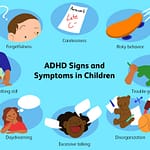Tianeptine is a medication used for treating anxiety and depression. It acts on several key brain functions including opioid neurotransmitter receptors. The drug also has anxiolytic effects that may be helpful for people with anxiety disorders. However, it does carry the same risks as other opioids.
It is not an FDA-approved product and should not be taken without the supervision of a medical provider. Because of its strong antidepressant effect, tianeptine can have abuse potential. Using high doses can be difficult to stop and can lead to serious adverse effects. If you are dependent on tianeptine, you may want to consider an inpatient treatment program.
A recent study by the Centers for Disease Control and Prevention revealed that tianeptine-related calls to poison control centers increased 883 times between 2015 and 2017. Two deaths have been linked to tianeptine abuse in the United States. In addition, dozens mo

re have been reported outside the U.S.
Although tianeptine is not approved by the FDA, the drug is widely available in Europe and Asia.
It is available in capsule, tablet, and powder form. Several companies are selling tianeptine supplements online and in gas stations. These products claim to treat pain and anxiety, but the FDA has not endorsed them.
Tianeptine is commonly prescribed in Europe and Latin America. It is an effective antidepressant and relieves stress and anxiety. It also inhibits glutamate receptors. But its use is limited in the United States. While it is a viable alternative to opioids, tianeptine is not approved for prescription use.
Tianeptine is also available as a dietary supplement. It is not approved by the FDA, but the company that makes the supplement is not required to register the product with the agency. During the study, tianeptine-containing products claimed to treat anxiety, depression, pain, and other conditions. When used for a long time, it can lead to a substance use disorder.
Although it has antidepressant effects, it is not a painkiller. It can cause respiratory suppression and other negative effects. People who suffer from depression and anxiety should seek help before using tianeptine.
As with other opioids, tianeptine withdrawal can be dangerous. People who misuse tianeptine may experience symptoms like cravings, mood swings, and agitation. Withdrawal symptoms usually clear up after a week. But you can also experience post-acute withdrawal, which includes symptoms such as abdominal cramps, depression, and goosebumps.
Tianeptine abuse has been documented in several European countries. Abuse of tianeptine can cause drowsiness and sweating. Some users also report experiencing rapid heartbeat and confusion. Taking large doses of tianeptine can cause overdose.
Tianeptine has been prescribed as an opioid substitute in some Latin American countries. It is not safe to take as an opioid replacement in the United States. Fortunately, a recent study suggests that tianeptine’s pharmacokinetic profile in depression is favourable.
Tianeptine has been shown to be a useful antidepressant in reducing depressive symptoms in people with mild to severe major depressive disorder. However, it is important to note that the occurrence of adverse effects is rare.







